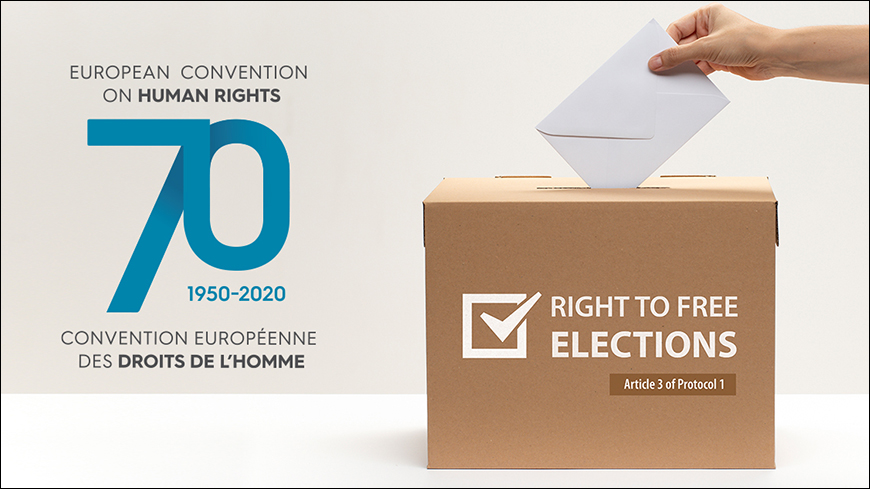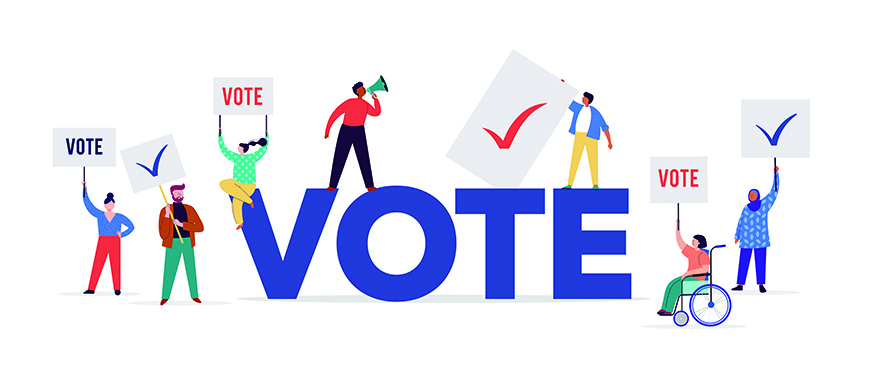Today, the Council of Europe is marking the 70th anniversary of the European Convention of Human Rights, opened for signature in Rome on November 4, 1950. It is one of the most important and effective international treaties ensuring protection of human rights and fundamental freedoms in Europe. The Convention established the European Court of Human Rights (the “European Court”) which is currently the effective mechanism to ensure that all member States comply with their obligations under the Convention.
The Convention in its Preamble stipulates that fundamental human rights and freedoms are best maintained by “an effective political democracy”. The European Court while deciding on the case Mathieu-Mohin and Clerfayt v. Belgium stated that “since it enshrines a characteristic principle of democracy, Article 3 of Protocol No. 1 is accordingly of prime importance in the Convention system”. Article 3 of Protocol No. 1 guarantees “[…] the right to free elections at reasonable intervals by secret ballot under conditions which will ensure the free expression of the opinion of the people […]”.
The Convention and the European Court case-law on electoral matters became an undisputed legal instrument in the Council of Europe member States which influenced the development of the constitutional law, as well as national electoral legislation and practice.
The Division of Elections and Civil Society provides all necessary support to the Council of Europe member States in order to bring their electoral practice in line with the Council of Europe electoral acquis, including the European Court case-law.
Due to the support provided by the Council of Europe project “Supporting the transparency, inclusiveness and integrity of electoral practice in Ukraine”, respective Guide on the European Court case-law on Article 3 of Protocol No. 1 became also available in Ukrainian. In addition to that, more than 220 national court decisions on electoral matters were analysed in context of the European electoral standards and the European Court case-law, and more than 200 national judges from 22 oblasts of Ukraine enhanced their knowledge and skills on electoral dispute resolution in light of the European Court case-law.
Another Council of Europe project “Improving electoral practice in the Republic of Moldova” supports integrity, transparency and quality of the electoral processes and system in the Republic of Moldova, encompassing strengthening the capacity and skills of the electoral stakeholders and the judiciary on electoral dispute resolution. Thus, best European practice on addressing electoral challenges, the European Court case-law, new administrative procedures, specificity of electoral complaints and other election-related legal aspects were discussed at the Electoral Dispute Resolution (EDR) training for judges and dedicated electoral staff organised online on 17-18 September 2020 on the basis of the newly developed Council of Europe Toolkit on Electoral Dispute Resolution. To foster the use of the Toolkit, it was translated into the state language and made available to all participants of the training, as well as to the Central Election Commission of the Republic of Moldova and the Centre for Continuous Electoral Training.
Within the framework of the electoral assistance project in Georgia, “Supporting transparency, inclusiveness and integrity of electoral practice and process in Georgia”, a permanent training course for judges on “Election Law and Electoral Dispute Resolution” was introduced at the High School of Justice of Georgia. The course is developed based on the principles of European electoral heritage aimed at better alignment of domestic electoral and court practices with the Council of Europe acquis and the European Court case-law. The course is included into the curriculum of the school and ensures consistent and sustainable professional growth of judges, as well as judicial candidates with the spirit of high awareness towards electoral rights and fundamental freedoms. Respective Guide on the case-law of the European Court of Human Rights on Article 3 of Protocol No. 1 became also available in the Georgian language and is included into the script of the course. Currently, up to 100 Georgian judges, adjudicating electoral complaints, have successfully completed the course and have deepened their knowledge of the Convention and the European Court case-law.





